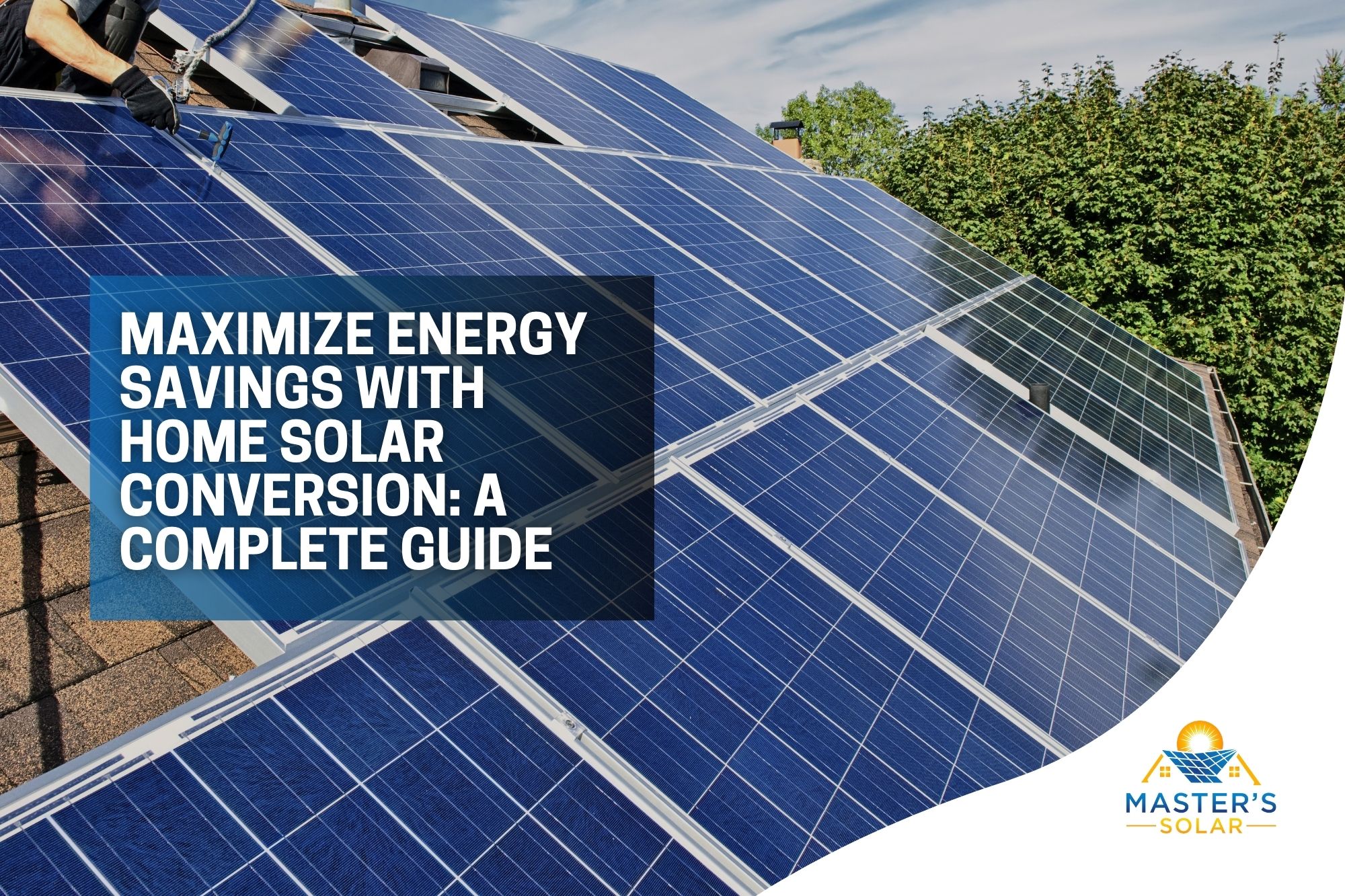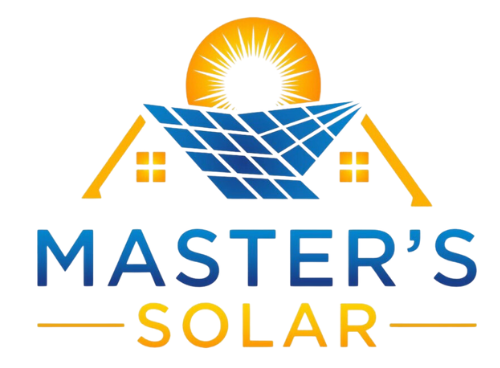
One great thing about home solar conversion is it gives homeowners energy independence. They’re no longer reliant on traditional power sources. They can produce their own electricity and become more self-sufficient.
To make the most out of home solar conversion, here are some tips:
- Place panels correctly. Make sure they’re at the best angle and direction. Clean them regularly for best performance.
- Invest in battery storage. This allows you to store energy for when sunlight isn’t enough.
- Monitor energy consumption. Use smart systems to track how much electricity is generated and used. This helps identify any problems and manage energy better.
By using these suggestions, you’ll get the most out of home solar conversion. The optimized panel placement gives maximum sunlight exposure and efficiency. Battery storage provides backup and reduces reliance on the grid. Monitoring energy consumption enables better management and faster troubleshooting.
Benefits of Home Solar Conversion
The perks of solar conversion are vast and varied. By taking advantage of the sun’s power, homeowners can benefit in numerous ways, beyond reducing their carbon footprint.
- Savings on electricity bills: Installing solar panels give homeowners the capacity to generate their own energy, thus saving money on monthly bills. With rising costs, this can lead to substantial long-term savings.
- Environmental benefits: Opting for solar conversion cuts down reliance on fossil fuels, aiding in the fight against climate change and safeguarding the environment. Going solar is a great way to contribute to a cleaner planet for future generations.
- Increase in property value: Homes fitted with solar panels tend to have higher market value. This is because potential buyers are attracted to properties that offer reduced energy costs and eco-friendly features.
- Energy independence: Switching to solar energy gives homeowners autonomy from traditional utility companies. They no longer need to fret about power outages or fluctuating electricity prices.
In addition to these core benefits, there are many other unique advantages worth exploring further.
Take this as an example:
Imagine not having to worry about skyrocketing energy bills during sweltering summer months or blackouts during bad weather. With home solar conversion, those worries become a thing of the past.
Now think about all you could achieve if you could use the money saved from lower electricity bills for something else – maybe going on that dream vacation or investing in your children’s education. The possibilities are endless when you make the most of solar conversion.
Don’t pass up this opportunity to reap these amazing benefits. Embrace home solar conversion now and revolutionize both your life and finances. Don’t wait until it’s too late!
Steps to Home Solar Conversion
Curious about solar power for your home? Here’s a guide to help you get started.
- Assess your Roof: Check if your roof gets enough sunshine throughout the day. South-facing, with minimal obstructions, is best for solar energy.
- Ask a Solar Installer: Contact a pro to evaluate your power needs. They can recommend system size and financing options. Plus, they’ll handle the technical installation.
- Install and Connect: Choose an installer, and they’ll do the rest. Enjoy clean, renewable energy!
But wait – there’s more! Going solar not only reduces your carbon footprint – it can also save you money. Generate your own electricity and you might not need a utility bill.
Sarah is a great example. She decided to go solar last year and she’s never looked back. She loves the lower electricity costs and feeling like she’s helping the planet.
Ready to join the eco-conscious homeowners who are embracing renewable energy solutions? Follow these steps and get started.
Financing Options for Home Solar Conversion
Homeowners who want to switch to solar energy have several financing options. These make the transition more affordable and possible. Here are six:
- Solar loans: These often come with low interest rates and flexible repayment terms.
- Leasing: Rent the solar panels and equipment, but this may not give long-term cost savings.
- Power purchase agreements (PPAs): Buy the electricity generated by the solar panels.
- Property assessed clean energy (PACE) financing: Finance solar installation through property taxes.
- Federal and state incentives: Tax credits, grants, or rebates.
- Cash purchase: Pay for it upfront. Can be most cost-saving in the long run.
When choosing, consider budget, desired return on investment, length of stay in the home, etc. Research and compare lenders and programs. Work with reputable installers. Look into tax incentives and grants.
Solar power has cost savings and environmental benefits. Consider it to reduce carbon footprint and save money.
Maintaining and Monitoring Your Home Solar System
To keep your home solar system efficient and functioning, follow these 3 steps:
- Clean regularly! Remove dirt and debris from the solar panels with a gentle cleanser and a soft brush. Doing so maximizes energy generation.
- Do a system check-up! Look for signs of wear and damage, such as cracks or loose components. Address any problems found quickly.
- Monitor performance. Use a monitoring system to track energy production levels in real-time. This helps detect any inefficiencies or faults and can optimize energy consumption.
It’s also important to know the warranty coverage details, equipment lifespan, and who to contact for technical support.
Thanks to technology, renewable energy is more accessible than ever. Homeowners can now use the sun’s energy with effective, easy-to-maintain systems. This helps create a sustainable future for all.
Conclusion
Home solar conversion is a promising solution for sustainable energy. By utilizing the sun’s energy, homeowners can generate clean electricity from their rooftops.
The benefits are more than just environmental. Homeowners can save money on their electricity bills, and even make money through net metering programs. Plus, solar panels require minimal maintenance and have a lifespan of up to 25 years, making them cost-effective in the long run.
Moreover, home solar conversion helps reduce reliance on fossil fuels and decrease carbon emissions. NREL states that switching to solar power could reduce CO2 emissions by an average of 3-4 tons per year per household. This decrease in greenhouse gas emissions is essential in fighting climate change and ensuring a long-term sustainable future.
The initial cost of installing solar panels may seem large. However, there are financing options such as leases, loans, and power purchase agreements (PPAs) to help. Plus, federal and state incentives reward the adoption of home solar conversion with tax credits and rebates.
Frequently Asked Questions
Q: What is home solar conversion?
A: Home solar conversion refers to the process of installing solar panels on residential properties to generate electricity from sunlight.
Q: How does home solar conversion work?
A: Solar panels installed on a home’s roof or in the yard capture sunlight and convert it into direct current (DC) electricity. An inverter then converts DC electricity into alternating current (AC) that can be used to power the home.
Q: Why should I consider home solar conversion?
A: Home solar conversion offers several benefits such as reducing electricity bills, decreasing reliance on fossil fuels, lowering carbon emissions, and potentially earning money through net metering or feed-in tariffs.
Q: How much does home solar conversion cost?
A: The cost of home solar conversion varies depending on factors like the size of the system, quality of panels, installation complexity, and location. On average, it can range from $10,000 to $30,000 or more.
Q: Are there any incentives or financial assistance available for home solar conversion?
A: Yes, there are often incentives and financial assistance programs available at the federal, state, and local levels to help offset the cost of home solar conversion. These may include tax credits, rebates, grants, and low-interest loans.
Q: What maintenance is required after home solar conversion?
A: Generally, solar panels require minimal maintenance. Periodic cleaning of panels to remove dirt or debris, regular monitoring of system performance, and occasional inspections by professionals are recommended to ensure optimal efficiency.
Related posts:
- How Much Does Solar Increase Home Value? | Zillow Insights
- How Much Do Home Solar Panels Cost? A Complete Guide to Solar Panel Prices
- Determining the Perfect Size: How Much kW Solar Panel is Required for Your Home
- How Many Solar Panels to Power Home? A Comprehensive Guide on Calculating Solar Panel Requirements


